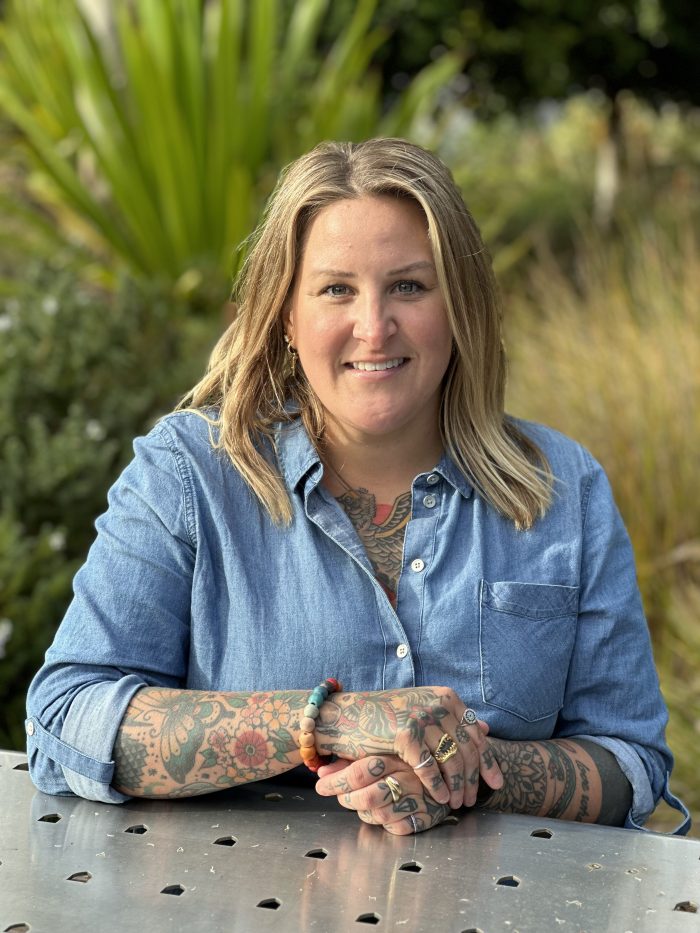Written by Laure Poncet
Catherine Gregory is a PhD researcher with the ARC Centre of Excellence for Climate Extremes and the Institute for Marine and Antarctic Studies (IMAS) at the University of Tasmania. Growing up by the coast in Port Macquarie, Australia, Catherine has always loved the ocean. Her fascination with the ocean and science is evident when she talks about her childhood.
“I grew up loving the beach and the ocean. I was there every chance I could get,” she said.
“At school, I was also fascinated by maths and science, but coming from a small town, I never really understood the sort of job opportunities that you could have in those fields. This is why I studied finance; it was the closest thing I could see to maths in a job.”
Catherine completed an undergraduate degree in finance at RMIT University in Melbourne, after which she undertook a short internship at ANZ Bank. While this work experience taught her some valuable skills, Catherine explained that it also made her realise that a career in banking was not for her.
“At that point, I knew I wasn’t going to be a banker but I also didn’t know what my next steps would be, so I decided to go travelling and seek some inspiration.”
“I ended up spending almost a year living on Hamilton Island on the Great Barrier Reef, working in hospitality. I then travelled to Africa to finally end up in Chile, where I opened a gelato store.”
Catherine’s gelato business started off small, making ice cream for a few restaurants, but soon grew to include two stores and a mobile operation for festivals in the summer.
“It was always sort of a dream of mine to make ice cream when I was younger. It’s sort of chemistry and mathematics combined; you have to balance sugars, fats and flavours.”
Catherine explained that while the initial stages of starting a business were exciting and challenging, she soon found herself craving more intellectual stimulation, which led her to return to studying.
“It was very challenging to get things going at the start, especially because everything was in a different language. I had to learn Spanish along the way,” she said.
“But when the business was up and running, I sort of missed using my brain and studying, so I decided to go back to Australia to pursue my studies.”
“The ocean has always been a big part of my life, even when I was travelling, so I really wanted to study something marine-based.”

Catherine completed a bachelor of marine science and mathematics at the Australian National University, followed by an honours at IMAS, where she focused on marine heatwaves and global fisheries.
After her studies, Catherine decided to pursue a PhD at the ARC Centre of Excellence for Climate Extremes and IMAS, where she is currently studying the predictability of marine heatwaves on a sub-seasonal to seasonal timescale.
She recently published a paper examining the combined influence of two climate modes—the Madden-Julian Oscillation and the El Nino Southern Oscillation—on extreme warming patterns in the Great Barrier Reef.
When asked about what she likes most about research, Catherine explains, “I like these types of quantitative analysis. I really love pulling out those patterns that you see in different climate modes and seeing the interactions and the impacts.”
Catherine will finish her PhD at the end of this year. Looking ahead, she plans to stay in academia and continue to do research around ocean extremes and threats to marine ecosystems.
“I would love to do more research to understand compound extreme events, like marine heatwaves with low oxygen events, including their regional impacts,” she said.
Besides research, Catherine plans on spending as much time as she can snorkelling, surfing and swimming in what she describes as “the most beautiful, peaceful, quiet space”: the ocean.
Catherine’s publications
Sub-seasonal to seasonal drivers of regional marine heatwaves around Australia | Climate Dynamics
